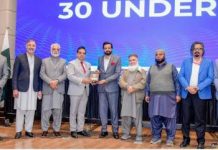CAP appreciates govt measures to address smog crisis that gripped major urban centers
ISLAMABAD, NOV 19 /DNA/ – The Chainstore Association of Pakistan (CAP) appreciates the proactive measures taken by the government to address the smog crisis that gripped major urban centers in recent weeks. As these efforts yield positive results and the smog levels recede, CAP urges the government to lift the remaining restrictions on markets and malls, allowing businesses to resume full operations and recover from substantial financial losses.
“Thanks to the Punjab Government’s swift actions, the smog situation is under control, and cities like Lahore, Faisalabad, and Multan are beginning to breathe easier,” said Asfandyar Farrukh, Chairman of the Chainstore Association of Pakistan (CAP). “Now is the time to support our businesses and the thousands of livelihoods dependent on them by reinstating retail timings to 10 PM instead of 8 PM at the minimum. Extending operating hours will provide the much-needed boost to retail and consumer activity as the crucial season for commerce has commenced.”
As per The Urban Unit report and other research bodies, the contribution of commercial activity to air pollution is negligible. Whereas, heavy transport using low-quality fuel, the burning of waste and crop residue as well as non-compliant factories contribute to smog the most, not retail. No other country or region is shutting down markets to control air pollution, Farrukh pointed out.
Unfortunately, the organized retail sector has repeatedly become the victim to abrupt restrictions which affects investment, employees and the general public. The industry is structured to run 7 days a week and takes a large financial hit when timings are restricted and full-days closures are implemented because heavy fixed costs continue for the closed period. In addition, suppliers and vendors also suffer because demand of their products and services are affected, leading to a domino effect. Such decisions are creating an unnecessary drag on revitalizing the economy and boosting employment.
Moreover, frequent changes to notifications and mis-enforcement by local authorities result in confusion and abrupt disruptions for the general public, employees and businesses. November and December are the peak period for retail activity as it is when the public is looking to purchase items for the colder climate and for special events such as family weddings. Most people visit markets and malls in the evening and night-time due to work and other commitments during weekdays. Therefore, early closure at 8 PM causes panic, congestion and results in lost opportunities. Moreover, when full closures on weekends are implemented, it deprives the public of a chance of visiting retail shops during their non-working days to fulfil their requirements.
Shutting down the retail sector repeatedly is unlikely to yield any of the desired results in smog reduction and, instead, weakens the domestic economy while it is in a recovery phase. As per industry data, early closure of 8 PM reduces retail sales by 15-20%, equalling over PKR 2.7 billion of revenue loss per week and approximately Rs. 600 million in taxes for the Federal and Provincial governments. Any full-day closures multiply these losses for businesses, the exchequer and the entire domestic economy.
As the winter season sparks renewed consumer activity, CAP calls on the government to seize this opportunity by reinstating normal retail hours. This decision will not only support the revival of the organized retail sector but also restore consumer confidence, setting a strong foundation for economic growth in the months and years ahead.
CAP also emphasizes the importance of sustained environmental and economic policies to prevent such crises in the future. The association reiterates its commitment to collaborating with policymakers to promote sustainable urban solutions while ensuring the economic viability of vital sectors.

















